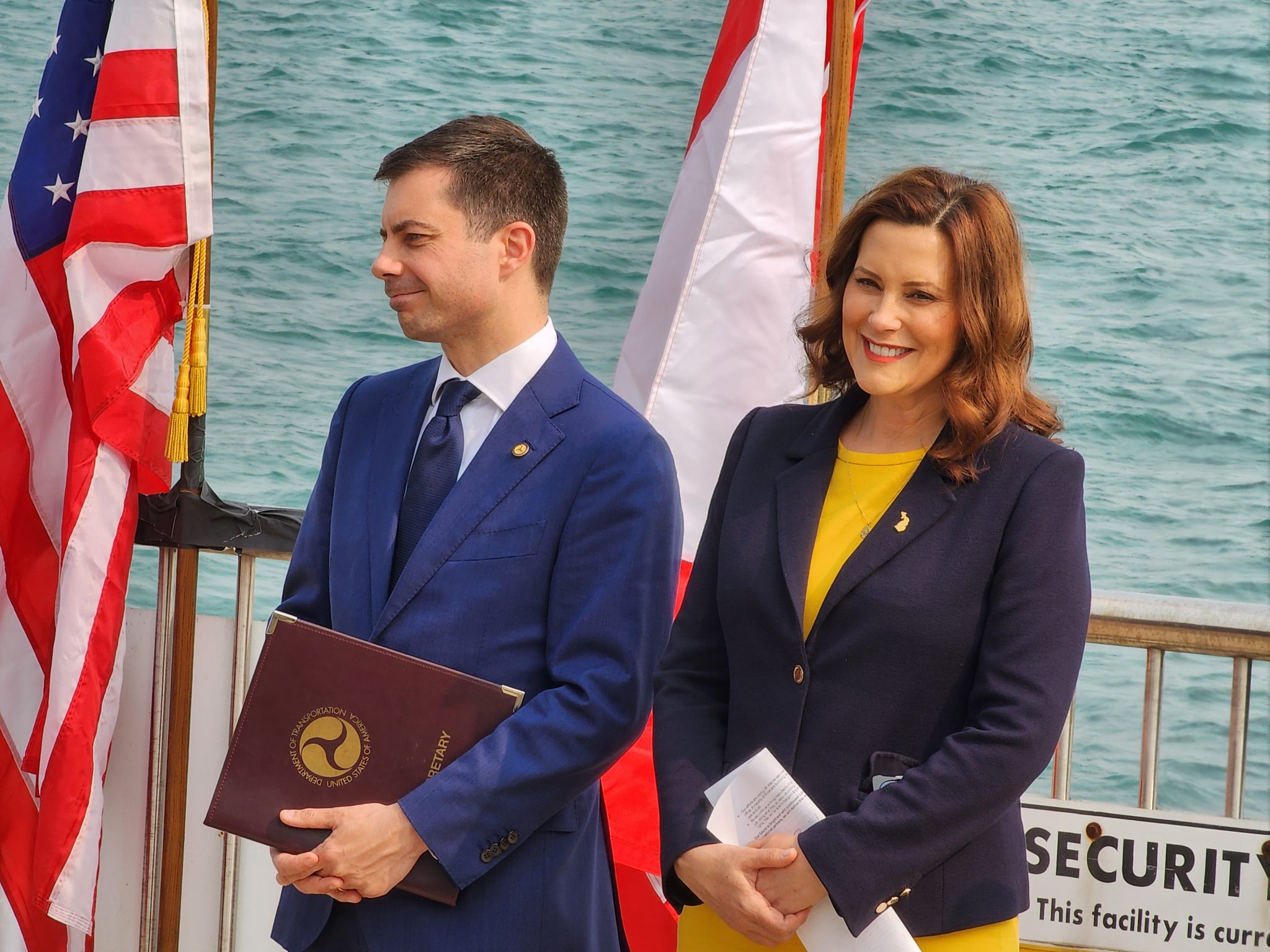US, Canada building international EV charging corridor
An 860-mile corridor will stretch from Kalamazoo to Quebec City in Canada, crossing the border at the Detroit River.

Pete Buttigieg and Gretchen Whitmer appear at a news conference in Detroit, Mich. announcing details of the international EV charging corridor between the U.S. and Canada on May 16, 2023.
The U.S. and Canada are working together to make a joint electric vehicle charging network. At a recent announcement, officials from both countries shared that an 860-mile international corridor will cross the border at the Detroit River.
The project will see DC fast chargers placed no more than 50 miles apart along a route from Kalamazoo to Quebec City in Canada. U.S. Transportation Secretary Pete Buttigieg says it will help bolster commerce between the two countries.
“About $148 billion in cross-border trade came through Detroit in the past year alone,” says Buttigieg. “About a third of that was related to the automotive sector.”
Listen: The impact of an international EV charging corridor
Michigan Gov. Gretchen Whitmer echoed that sentiment, saying the joint network will benefit anyone going between the two countries.
“This is the first cross-border electric vehicle corridor of its kind,” says Whitmer. “It will allow seamless international travel between Michigan and Canada.”
Whitmer announced Michigan will make use of $110 million in recently received federal funds to build out the corridor on the U.S. side of the border. That money comes from the federal National Electric Vehicle Infrastructure Program (NEVI).
The governor also touted how establishing an international corridor builds on her efforts to setup an EV charging network within the state.
“I proposed $65 million for electric vehicle charging infrastructure in my budget recommendation, building on that $110 million from NEVI,” stated Whitmer.
No concrete timeline has been given for completing the international charging corridor. Michigan is receiving federal funding to build out a network through 2026, with a goal of being able to support two million EVs in the state by 2030.
Trusted, accurate, up-to-date.
WDET strives to make our journalism accessible to everyone. As a public media institution, we maintain our journalistic integrity through independent support from readers like you. If you value WDET as your source of news, music and conversation, please make a gift today.
